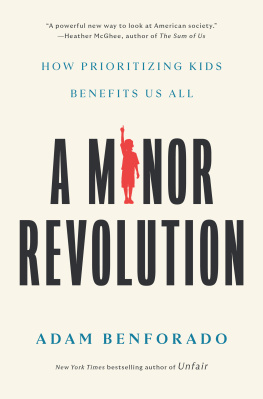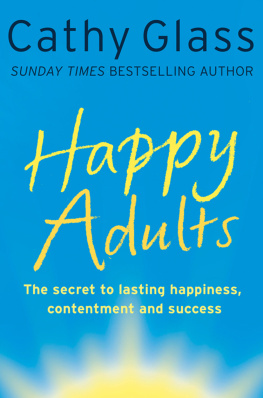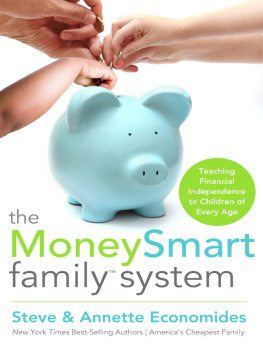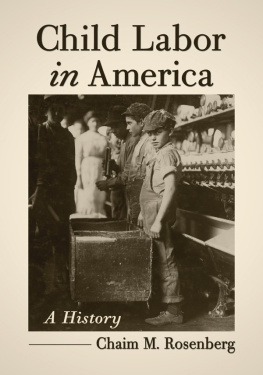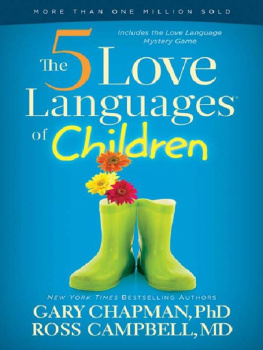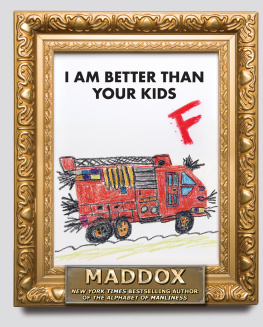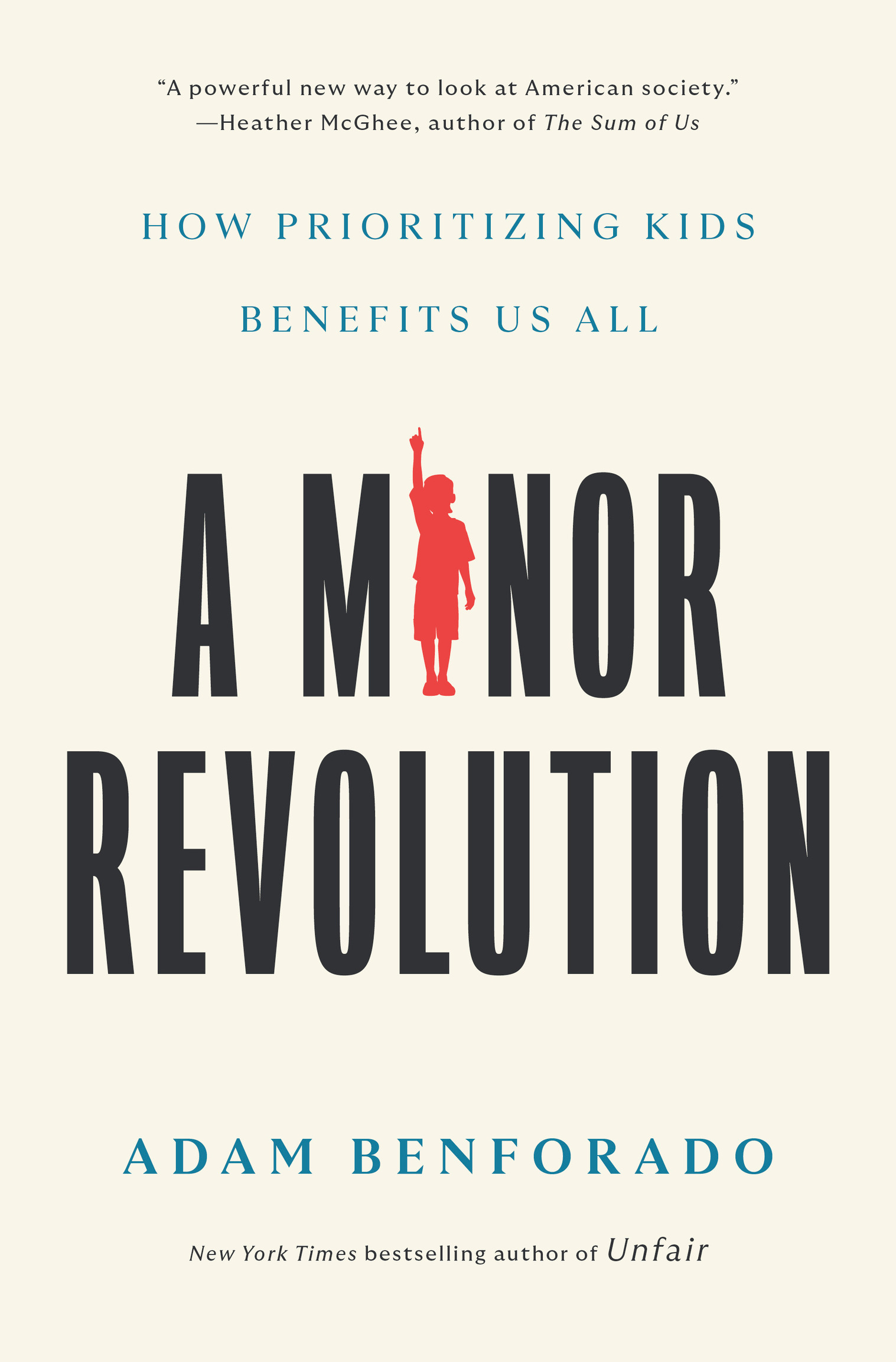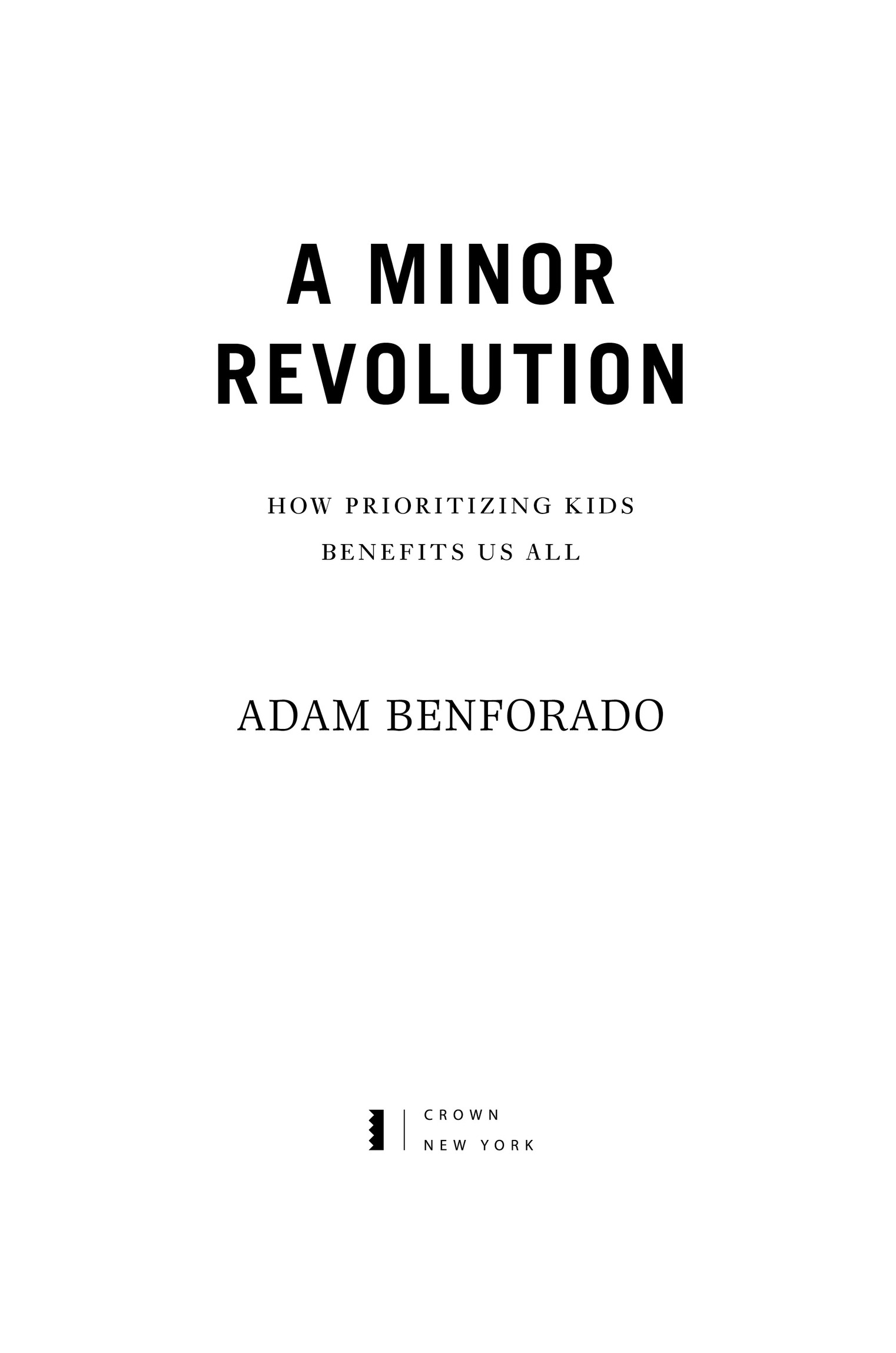Adam Benforado - A Minor Revolution: How Prioritizing Kids Benefits Us All
Here you can read online Adam Benforado - A Minor Revolution: How Prioritizing Kids Benefits Us All full text of the book (entire story) in english for free. Download pdf and epub, get meaning, cover and reviews about this ebook. year: 2023, publisher: Crown, genre: Children. Description of the work, (preface) as well as reviews are available. Best literature library LitArk.com created for fans of good reading and offers a wide selection of genres:
Romance novel
Science fiction
Adventure
Detective
Science
History
Home and family
Prose
Art
Politics
Computer
Non-fiction
Religion
Business
Children
Humor
Choose a favorite category and find really read worthwhile books. Enjoy immersion in the world of imagination, feel the emotions of the characters or learn something new for yourself, make an fascinating discovery.
- Book:A Minor Revolution: How Prioritizing Kids Benefits Us All
- Author:
- Publisher:Crown
- Genre:
- Year:2023
- Rating:5 / 5
- Favourites:Add to favourites
- Your mark:
A Minor Revolution: How Prioritizing Kids Benefits Us All: summary, description and annotation
We offer to read an annotation, description, summary or preface (depends on what the author of the book "A Minor Revolution: How Prioritizing Kids Benefits Us All" wrote himself). If you haven't found the necessary information about the book — write in the comments, we will try to find it.
Revolutionary and accessible . . . a powerful new way to look at American society through the lens of our children.Heather McGhee, New York Times bestselling author of The Sum of Us
At the dawn of the twentieth century, a bright new age for children appeared on the horizon, with progress on ending child labor, providing public education, combating indigence, promoting wellness, and creating a juvenile justice system. But a hundred years on, the promised light has not arrived. Today, more than eleven million American children live in poverty and more than four million lack health insurance. Each year, we prosecute thousands of kids as adults, while our schools crumble. We deny young people any political power, while we fail to act on the issues that matter most to them: racism, inequality, and climate change.
Through unforgettable stories, law professor Adam Benforado draws a vivid portrait of our neglect. We are there when Ariel is placed in an orphanage after her parents are locked away for transporting marijuana, when Harold first gazes in disbelief upon the immaculate lawn of an elite private school after a childhood of asphalt play yards, when Wylie is hit with a paddle by his public-school principal as punishment for taking a moment of silence to protest gun violence. When Tyler runs for governor at age seventeen, we are also there to witness the extraordinary capacities of young people.
Our disregard for childrens rights is not simply a moral problem; its also an economic and social one. The root cause of nearly every major challenge we facefrom crime to poor health to unemploymentcan be found in our mistreatment of kids. But in that sobering truth is also the key to changing our fate as a nation.
Drawing on the latest research on the value of early intervention, investment, and empowerment, A Minor Revolution makes the urgent case for putting children firstin our budgets and policies, in how we develop products and enact laws, and in our families and communities. Childhood is the window of opportunity for all of us.
Adam Benforado: author's other books
Who wrote A Minor Revolution: How Prioritizing Kids Benefits Us All? Find out the surname, the name of the author of the book and a list of all author's works by series.

